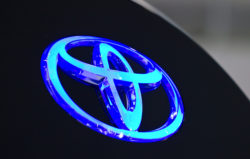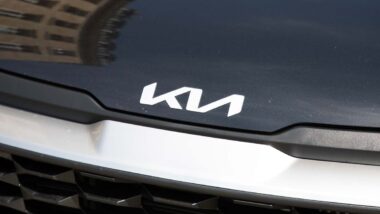Top Class Actions’s website and social media posts use affiliate links. If you make a purchase using such links, we may receive a commission, but it will not result in any additional charges to you. Please review our Affiliate Link Disclosure for more information.

The Toyota brake class action was filed by California resident Mariano Alaniz, who claims that the 2010-2015 Prius and Prius PHV, the 2012-2015 Prius V, the 2012-2014 Camry Hybrid, and the 2013-2015 Avalon Hybrid vehicles possess defective brake booster pump assemblies.
Alaniz says that in 2017, he purchased a 2014 Toyota Prius from a Toyota-authorized dealer believing it to be free from defects. He claims that, since purchasing the vehicle, he has experienced the brake defect numerous times.
Allegedly, the defect causes Alaniz to have difficulty coming to a stop, even though he applies pressure to the brakes. He claims that this problem has increased his stopping distance. The plaintiff argues that the brake defect and the increased stopping distance pose a serious safety hazard to him, other drivers, and pedestrians near his vehicle.
According to the Toyota brakes class action lawsuit, this defect is common in many of the Class vehicles.
The lawsuit claims that none of the advertisements or representations viewed by Alaniz indicated that the vehicle was defective. Alaniz argues that if Toyota had disclosed the defect, he would not have purchased the vehicle or would have paid less than he did for it.
The Toyota class action lawsuit goes on to assert that Toyota was aware of the defect, and even recalled some vehicles. However, Alaniz argues that this recall only dealt with some of the affected vehicles and not all of the vehicles that possess the defect.
Toyota allegedly defined the defect in a 2013 Defect Information Report sent to the National Highway and Transportation Safety Administration. The report explained that cracks could develop in the pleated bellows of the metal plunger which contains brake fluid. These cracks, which emerge after use, could then cause nitrogen gas to leak into the brake fluid and “gradually cause the brake pedal strokes to become longer, resulting in decreased hydraulic pressure,” according to the company’s report.
Toyota allegedly said that the condition could affect stopping distance and increase the risk of a crash. Toyota reportedly investigated the problem for 18 months and voluntarily issued a recall of some affected vehicles. However, this recall was limited to only some 2010 Toyota Prius and Lexus HS250h vehicles and none of the vehicles that Alaniz proposes to include in the Class vehicles.
The Toyota class action argues that Toyota was aware that the defect was present in some Class vehicles, noting that the company then issued another recall in 2019, which Alaniz says did still not fully address the problem.
Alaniz seeks damages on behalf of himself and all other similarly affected consumers.
Do you drive a Toyota? Tell us why you chose your vehicle in the comments below.
Alaniz is represented by L. Timothy Fisher and Scott A. Bursor of Bursor & Fisher PA.
The Toyota Brake System Defect Class Action Lawsuit is Mariano Alaniz v. Toyota Motor Corporation, et al., Case No. 3:20-cv-01351, in the U.S. District Court for the Northern District of California.
ATTORNEY ADVERTISING
Top Class Actions is a Proud Member of the American Bar Association
LEGAL INFORMATION IS NOT LEGAL ADVICE
Top Class Actions Legal Statement
©2008 – 2024 Top Class Actions® LLC
Various Trademarks held by their respective owners
This website is not intended for viewing or usage by European Union citizens.















24 thoughts onToyota Class Action Lawsuit Alleges Brake Defect in Hybrids
I posted earlier about my 2012 Prius gen 3 having the brake power booster fail and now have no brakes.